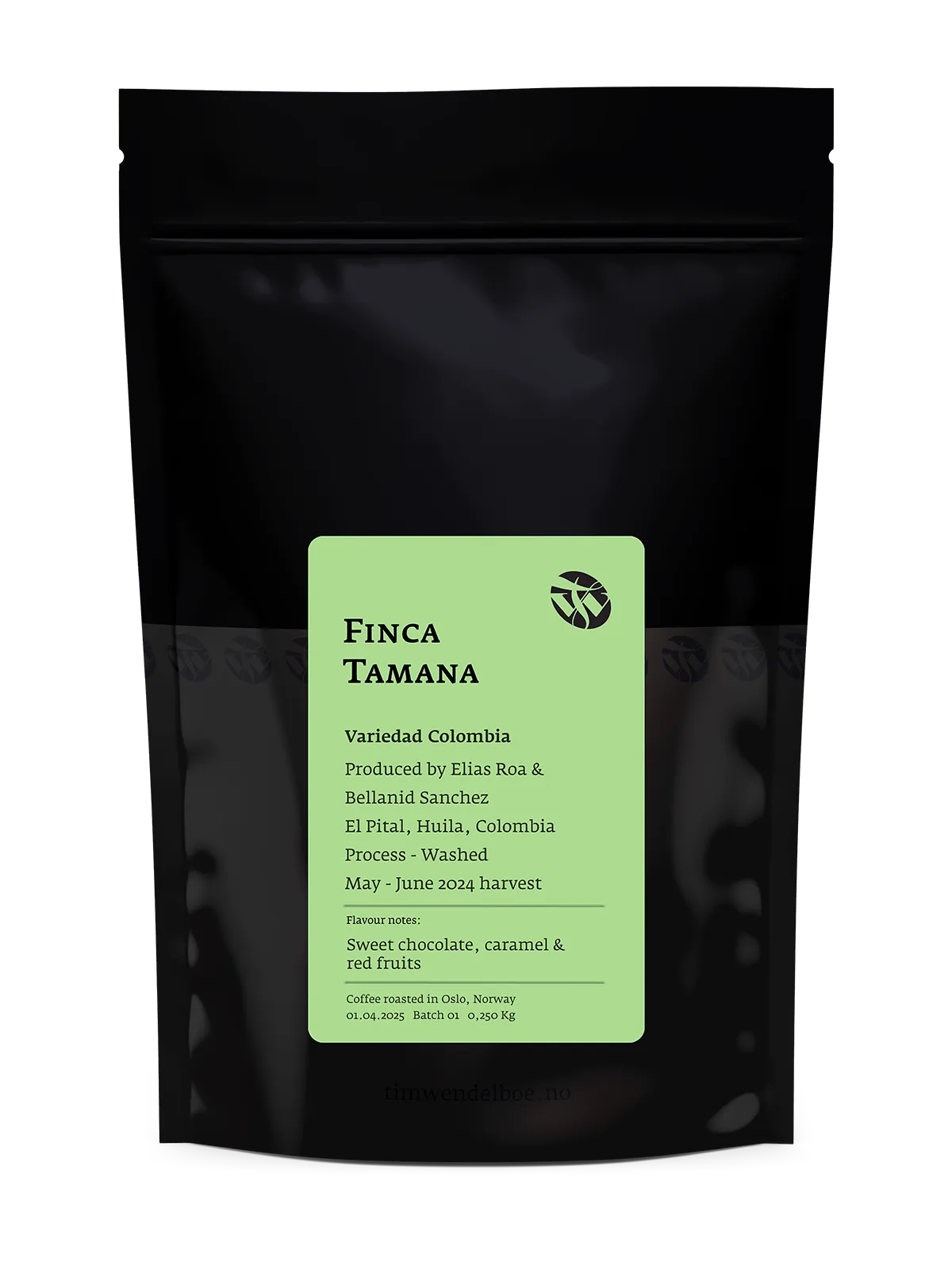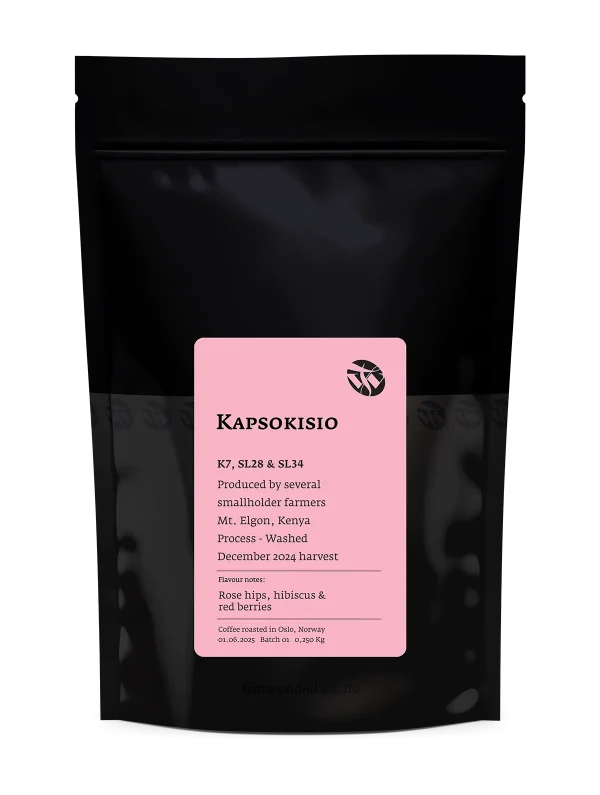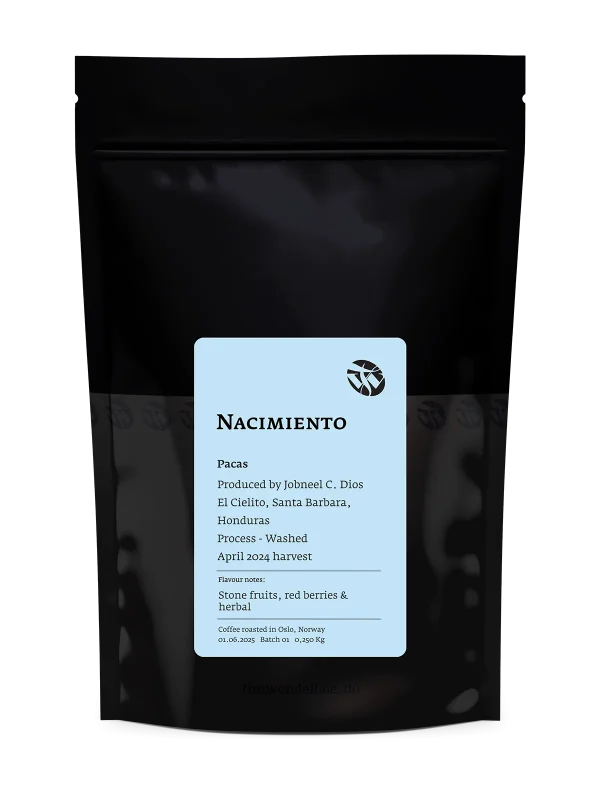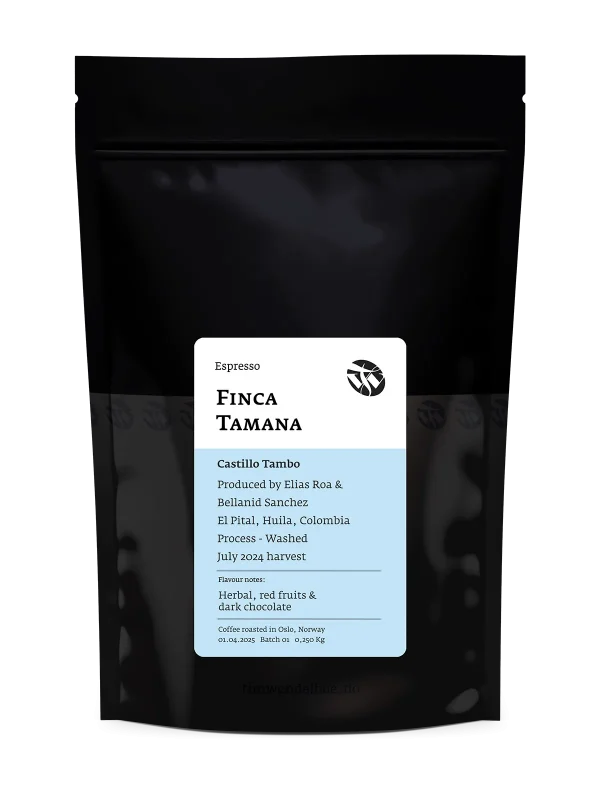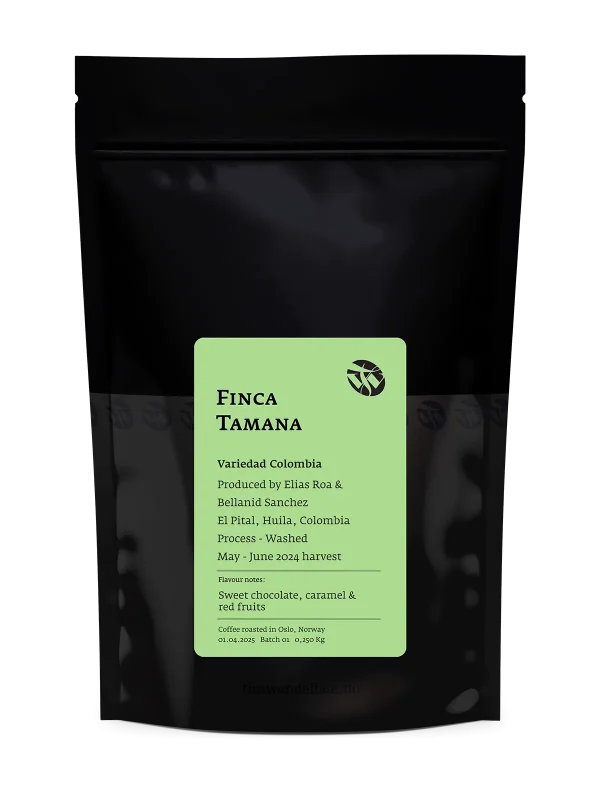| Cultivar | Variedad Colombia |
|---|---|
| Flavour Notes | Sweet chocolate, caramel & red fruits |
| Producer | Elias Roa & Bellanid Sanchez |
| Country | Colombia |
| Region | El Pital, Huila |
| Process | Washed |
| Harvest | May – June 2024 |
| Roast Profile | Light Roast |
| Contents | Whole Coffee Beans |
| Bag Size | 250g |
Finca Tamana Variedad Colombia
kr218.00
The majority of Finca Tamana is planted with Variedad Colombia so you might say it is the benchmark coffee from this farm. Expect a caramel like (or panela if you are Colombian) sweetness with a clean and smooth mouthfeel and subtle fruity and herbal flavours.
Additional information
Tim's Notes
When Elias and his wife Bellanid bought Finca Tamana in 2011 most of the farm was planted with the two cultivars Caturra and Variedad Colombia. Since then the Caturra trees have been attacked by leaf rust almost every year and the quality and production has therefore been a bit up and down. The Variedad Colombia is resistant to leaf rust and because of that it has consistently been tasting better compared to the Caturra over the years.
Many buyers are sceptical to the Variedad Colombia cultivar as it tends to be more herbal in the aftertaste than the traditional Caturra. Apart from that, they do taste very similar. (After all, Caturra was used in order to develop the Variedad Colombia hybrid by cross pollinating Caturra with the Timor Hybrid.) However, we have found that when the coffee cherries are picked super ripe at a purple colour, the herbal flavours tend to be more in the background and you'll get more fruity characteristics in the cup. The meticulous picking and sorting protocols at Finca Tamana makes this coffee super sweet with subtle ripe red fruit flavours. The coffee has a recognisable clean and smooth cup profile that is a result of the thorough processing and drying techniques we have developed together with Elias and Bellanid over the years.
In order to make sure we get the very best coffees from Tamana each year, I taste through all the individual pickings of each cultivar and select the very best ones. Since they produce many small batches of Variedad Colombia, it means that I normally select between 10-15 pickings that gets blended in to 2-3 different lots depending on picking dates, moisture content, quality and cup profile. It has taken a lot of years and work to gradually raise the quality of these coffees, but I believe we have managed to take their "regular" coffee to a new level that is consistently sweet and clean and has a characteristic flavour profile that reflects the cultivar and region this coffee is from.
Many buyers are sceptical to the Variedad Colombia cultivar as it tends to be more herbal in the aftertaste than the traditional Caturra. Apart from that, they do taste very similar. (After all, Caturra was used in order to develop the Variedad Colombia hybrid by cross pollinating Caturra with the Timor Hybrid.) However, we have found that when the coffee cherries are picked super ripe at a purple colour, the herbal flavours tend to be more in the background and you'll get more fruity characteristics in the cup. The meticulous picking and sorting protocols at Finca Tamana makes this coffee super sweet with subtle ripe red fruit flavours. The coffee has a recognisable clean and smooth cup profile that is a result of the thorough processing and drying techniques we have developed together with Elias and Bellanid over the years.
In order to make sure we get the very best coffees from Tamana each year, I taste through all the individual pickings of each cultivar and select the very best ones. Since they produce many small batches of Variedad Colombia, it means that I normally select between 10-15 pickings that gets blended in to 2-3 different lots depending on picking dates, moisture content, quality and cup profile. It has taken a lot of years and work to gradually raise the quality of these coffees, but I believe we have managed to take their "regular" coffee to a new level that is consistently sweet and clean and has a characteristic flavour profile that reflects the cultivar and region this coffee is from.
Cultivar
Traditionally Colombian farmers produced Caturra, Bourbon and sometimes Typica cultivars.
Unfortunately all of these are highly susceptible to leaf rust which is the reason why Cenicafe (the Colombian coffee research institute) started developing a resistant hybrid cultivar back in the late 1960's that became Variedad Colombia. Variedad Colombia was released in the 1980's and is a crossing between Caturra and the Timor Hybrid ( A natural crossing between C. Canephora (Robusta) and C. Arabica.)
Variedad Colombia is a multiline selection that has rust resistant genes from the Timor Hybrid with good yield potential and with similar cup quality as Caturra. Today Caturra, Variedad Colombia and Castillo (the later development of Variedad Colombia) are the most commonly grown cultivars in Colombia.
Variedad Colombia is a multiline selection that has rust resistant genes from the Timor Hybrid with good yield potential and with similar cup quality as Caturra. Today Caturra, Variedad Colombia and Castillo (the later development of Variedad Colombia) are the most commonly grown cultivars in Colombia.
Process
Picking and sorting
Depupling, fermenting & washing
Drying
- The coffee is selectively hand picked by hired pickers under supervision of Elias. Cherries are hand-sorted before they are processed to make sure only ripe cherries are processed together.
Depupling, fermenting & washing
- The coffee cherries are stored in the cherry hopper in open air over night before the coffee is de-pulped in the morning. After de-pulping, the parchment coffee with the mucilage on is fermented for 24 hours in clean stainless steel tanks. The fermentation is stopped when the mucilage is easy to clean off and before the coffee flavour is influenced by negative fermentation flavours. The coffee is then washed in clean water by using an eco-mill which is a mechanical mucilage remover. The eco-mill reduces water waste from the average 50-100 litres of water per kilo of coffee with traditional washing methods to only 0,5 – 1 litre per kilo. After washing the coffees are soaked for 24 hours in clean water in tiled cement tanks. All floaters (beans with low density) are removed during the washing and soaking process.
Drying
- After the soaking stage the clean parchment coffee is dried in parabolic dryers and drying beds covered with shade nets to prevent the beans from over heating. The coffees are raked throughout the day to ensure even drying. Drying normally takes from 20 to 30 days and once the moisture content is below 11% it gets packed and stored in air tight grain pro bags. All our coffees from Finca Tamana are vacuum packed before it is shipped to Norway.
Shipping
For our Norwegian customers, we offer three shipping options:
- Pakke i Postkassen - With Pakke i Postkassen, tracking is provided, and delivery is estimated within 2-3 business days.
- Pakke til hentested - The parcel can be collected from a Post in Store, Post Office, parcel locker, or parcel box. This option includes tracking, with delivery expected within 1-5 business days.
- Norwegian Post, No Tracking (Brevpost) - This option does not offer tracking. Delivery is estimated within 2-5 business days.
How To Brew
Filter
- We strongly recommend using the correct measurements and brewing techniques when you brew our coffees. Use a digital scale both to measure water and coffee in order to get consistent results, and we recommend using between 60 to 70 grams of coffee per litre (1000g) of water, depending on the brewing method, water quality and coffee used.
- We strongly recommend using VST filter baskets. Both the 18g, 20g and the 22g basket is great for our coffee. The VST filters makes it a lot easier to extract the espresso properly which gives a lot more sweetness in the cup. They are also more or less identical to each other which makes it easy to be more consistent when brewing on several groups at the same time. You can buy the filters on our webshop, just make sure they fit your machine (ours fits all La Marzocco machines and machines with 58mm filter baskets). With the VST 18g filter basket, we recommend the following brewing parameters: 18-19g freshly-ground coffee, 25-35s brewing time, 35-38g of final brew liquid in the cup, 93°C-94°C brew water temperature.
Finca Tamana
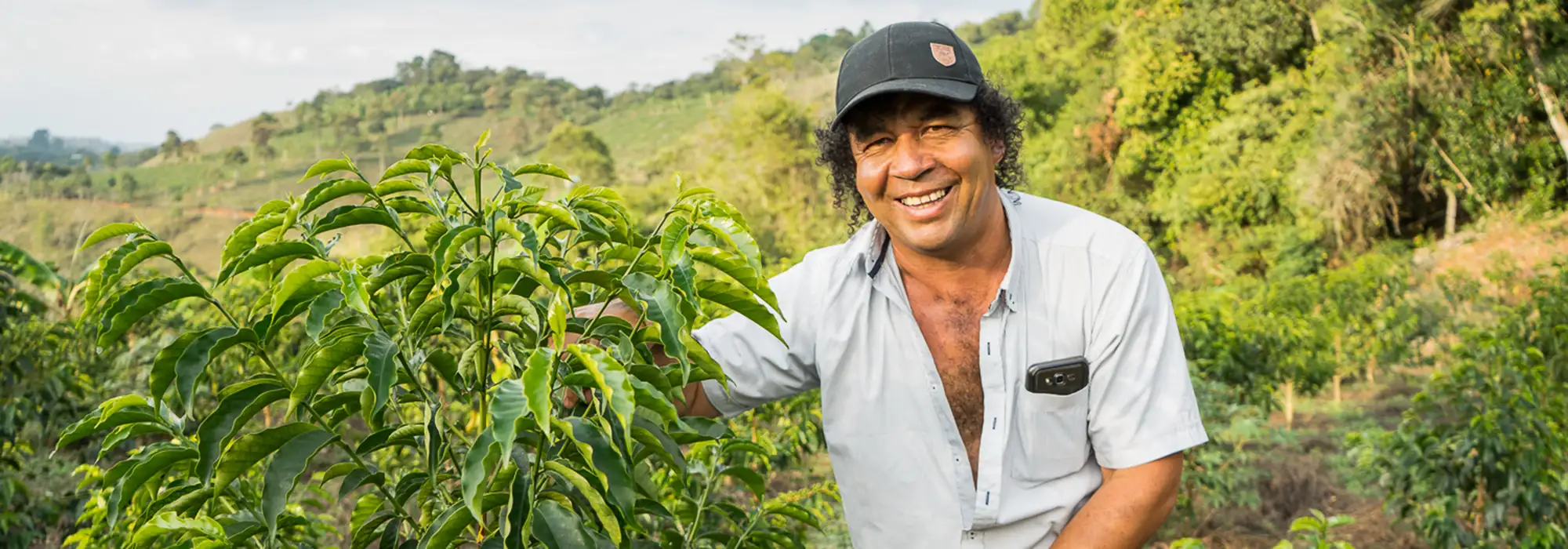
We started working with Elias Roa in 2012 and since then we have been working hard, every harvest, to improve the infrastructure at the farm as well as farming and processing practices. I first met Elias back in 2007 when I was traveling around Colombia with my friend and coffee exporter mr. Alejandro Renjifo. The aim of the trip was to find delicious coffees and potential farmers that I could work with to make sure we got a steady supply of tasty coffees from Colombia. While passing through the state of Huila I visited a small group of farmers in Acevedo that was lead by Elias. I remember we drank hot chocolate (!) and ate bread and cheese at his house and Elias gave me an impression of being a passionate and hard working farmer. Later that year I received a few samples from him but unfortunately his coffee was not meeting my quality requirements so nothing really came out of it.
Learn More About Finca Tamana
Transparency
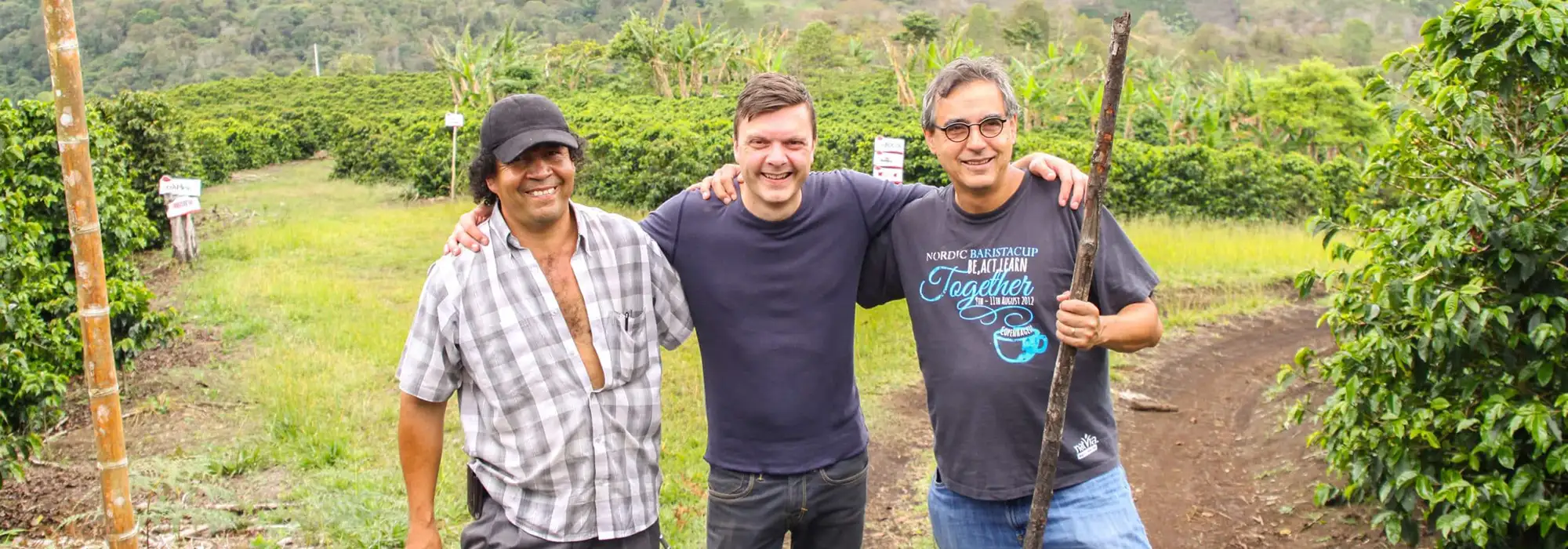
We buy coffee directly from Elias Roa, the farmer. Fairfield Trading, the exporter, provides milling and logistical service and the coffee is imported by ourselves directly to Norway.
Learn More About Transparency

